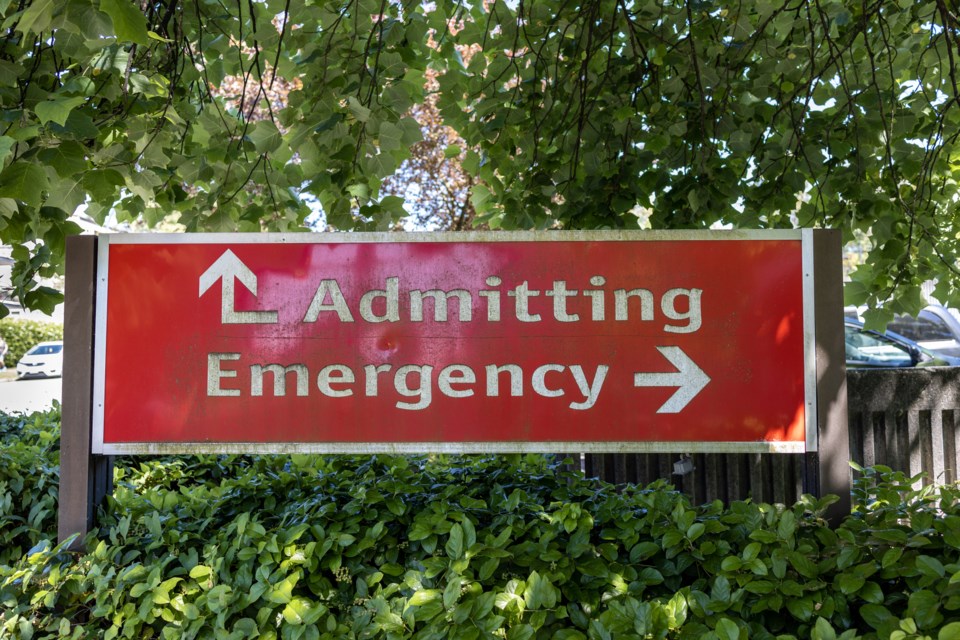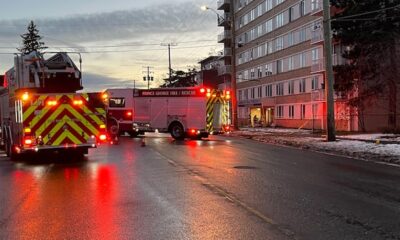Health
B.C. Health Care and Crime Stats Spark Public Concern

Health care and public safety remain pressing concerns for residents of British Columbia. Recent statistics reveal significant challenges within the health-care system, raising questions about the government’s effectiveness in addressing public worries. In particular, nearly 142,000 individuals left B.C. emergency rooms last year without receiving care, highlighting the strain on hospitals and the health-care system.
According to internal data from the health ministry, obtained by the Opposition BC Conservatives through freedom of information, the number of patients departing emergency rooms without being seen has surged by 86 percent over the past six years. Opposition Conservative critic Brennan Day emphasized the human impact of these figures, stating, “These aren’t just numbers, they’re lives. That’s 141,961 people who turned to the system in a moment of crisis and were turned away by a government that simply isn’t listening.”
The province’s health system is experiencing particularly severe issues in Island Health, where the rate of individuals leaving ERs without treatment increased by 160 percent over the same period. In Fraser Health, the increase stood at 87 percent, and 56 percent in Vancouver Coastal Health. Reports from emergency rooms reflect these trends, with wait times at Surrey Memorial Hospital reaching almost 10 hours on a recent Thursday night.
Despite these alarming statistics, the health ministry asserted that it prioritizes patients according to the severity of their conditions. A statement from the ministry indicated, “The number of patients that leave the ED without being seen is a small proportion of the total number of visits to the ED.” The ministry encouraged patients to inform triage nurses if they choose to leave the emergency department.
In response to criticism, the BC NDP government stated it is actively working to recruit additional healthcare staff, including nurses and doctors, to alleviate wait times. However, the dramatic rise in the number of individuals leaving ERs aligns with growing public frustration over lengthy hospital wait times.
In contrast, crime statistics present a different narrative. Data from Statistics Canada indicates that crime rates in B.C. fell by 7 percent last year, with the crime severity index declining by 11 percent. Nina Krieger, the province’s new solicitor general, celebrated these figures as evidence of the government’s efforts to enhance community safety. She attributed this progress to collaboration among various stakeholders, including First Nations and local governments.
Yet, many residents perceive a disparity between these statistics and their lived experiences. Jess Ketchum, co-founder of the Save Our Streets coalition, noted, “Take a walk in almost any downtown in B.C., and it’s quickly apparent that street disorder and crime has not decreased.” His comments reflect the concern voiced by businesses facing vandalism, crime, and disorder, which contradicts the reported decline in crime rates.
Ketchum also pointed out that many crimes go unreported, leading to a perception that actual crime rates may be higher than statistics indicate. The visible challenges of homelessness, open drug use, and public distress in areas such as Vancouver’s Downtown Eastside and Victoria’s Pandora Avenue further contribute to this sentiment.
In addition, the province has faced serious incidents of intimate partner violence, including a recent case in which a Kelowna man was charged with murdering his ex-wife in broad daylight shortly after being convicted of other violent threats.
As the government seeks acknowledgment for its efforts to address health care and crime, the challenge remains in convincing the public that these systems can be relied upon in moments of need. Many British Columbians continue to express doubt about the effectiveness of both health care and public safety measures, irrespective of the statistics presented.
In a province where trust in public services is paramount, the true measure of success will be whether residents feel secure in their communities and confident in the health care system when crises arise.
-

 Politics4 weeks ago
Politics4 weeks agoSecwepemc First Nation Seeks Aboriginal Title Over Kamloops Area
-

 World5 months ago
World5 months agoScientists Unearth Ancient Antarctic Ice to Unlock Climate Secrets
-

 Entertainment5 months ago
Entertainment5 months agoTrump and McCormick to Announce $70 Billion Energy Investments
-

 Science5 months ago
Science5 months agoFour Astronauts Return to Earth After International Space Station Mission
-

 Lifestyle5 months ago
Lifestyle5 months agoTransLink Launches Food Truck Program to Boost Revenue in Vancouver
-

 Technology3 months ago
Technology3 months agoApple Notes Enhances Functionality with Markdown Support in macOS 26
-

 Lifestyle3 months ago
Lifestyle3 months agoManitoba’s Burger Champion Shines Again Amid Dining Innovations
-

 Top Stories2 months ago
Top Stories2 months agoUrgent Update: Fatal Crash on Highway 99 Claims Life of Pitt Meadows Man
-

 Politics4 months ago
Politics4 months agoUkrainian Tennis Star Elina Svitolina Faces Death Threats Online
-

 Sports5 months ago
Sports5 months agoSearch Underway for Missing Hunter Amid Hokkaido Bear Emergency
-

 Politics5 months ago
Politics5 months agoCarney Engages First Nations Leaders at Development Law Summit
-

 Technology5 months ago
Technology5 months agoFrosthaven Launches Early Access on July 31, 2025





















